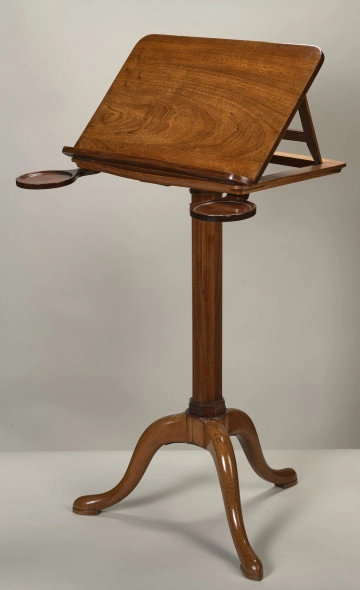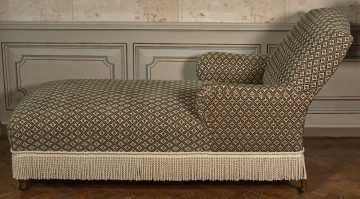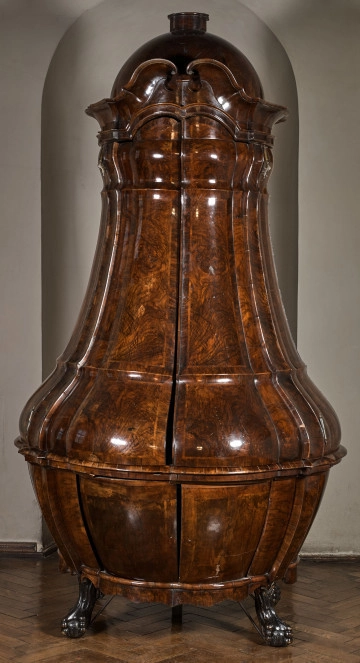
Wooden desktop
18th-19th century
Castle Museum in Łańcut
Part of the collection: Meble i wyposażenie wnętrz
Biedermeier table Classicism marks the end of a period of universal styles in European art, distinguished by common features in architecture, fine arts and crafts. At the end of the 18th century, French Classicism took a simplified form known as the Directoire style, which was later on enriched under Napoleon Bonaparte with Roman antiquity and the art of ancient Egypt and transformed into the Empire style. English Classicism from the time of Robert Adam went in the direction of achieving greater clarity, lightness and finesse at the expense of simplifying forms. Around 1800, English Classicism, fuelled by discoveries at Pompeii and Herculaneum as well as archaeological finds in Tuscany, significantly influenced the way interiors were decorated in Europe. The furniture, modelled on images from Greek vases, became in a sort of a way the quintessence of ancient borrowings. This simplified, balanced form of late Classicism was adapted in the Austro-German Biedermeier style and in the French restoration style after the Congress of Vienna in 1815 and became a permanent feature of the furniture making in the 19th century. The shape of this Biedermeier-like side table is influenced by the ancient Greek tripod or the Roman three-legged handy table called ‘cilibantum’. Teresa Bagińska-Żurawska https://orcid.org/0000-0002-9243-3967
Author / creator
Object type
Furniture and interior fittings
Technique
veneering
Material
veneer, pine wood
Creation time / dating
Creation / finding place
Owner
Castle Museum in Łańcut
Identification number
Location / status

unknown
18th-19th century
Castle Museum in Łańcut

unknown
20th century
Castle Museum in Łańcut

unknown
18th century
Castle Museum in Łańcut
DISCOVER this TOPIC
National Museum in Szczecin
DISCOVER this PATH
Educational path
0/500

We use cookies to make it easier for you to use our website and for statistical purposes. You can manage cookies by changing the settings of your web browser. More information in the Privacy Policy.
We use cookies to make it easier for you to use our website and for statistical purposes. You can manage cookies by changing the settings of your web browser. More information in the Privacy Policy.
Manage cookies:
This type of cookies is necessary for the website to function. You can change your browser settings to block them, but then the website will not work properly.
WYMAGANE
They are used to measure user engagement and generate statistics about the website to better understand how it is used. If you block this type of cookies, we will not be able to collect information about the use of the website and we will not be able to monitor its performance.